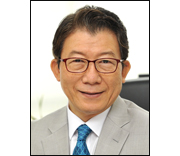-
[December 26, 2016 Korea times] Honesty prevents economic crisis
- Date : 2017.01.03
- Views : 440
Honesty prevents economic crisis

By Jeffrey I. Kim
I have often heard “Honesty is the best policy” since my childhood. According to a record, this proverb was first used by Benjamin Franklin (1705-1790). But honesty is greatly valued in many religious cultures as well. Honesty refers to such virtuous traits as integrity, truthfulness, and straightforwardness. It also means being fair and faithful.
At the individual level, honesty may not work at times. As an example, if someone honestly expresses a negative opinion of others at a party, he may be scolded for being naive and undisciplined. At the national level, however, honesty always pays.
Some foreign investors operating their businesses in Korea are concerned about Korea’s current political situation. In their eyes the Korean economy seems to be losing its vitality and resilience under political instability. Many others, however, still have strong confidence in the longer-term viability of the Korean economy. They started their businesses in Korea not just for short-term profit, but for long-term business opportunities.
These days all countries are having a hard time dealing with political and economic uncertainties and risks except the US and a few countries in the world. Korea is not an exception. Foreign correspondents understand that Korea’s current political instability is a cyclical phenomenon. It occurs every five years in Korea as the incumbent President becomes a “lame duck” starting about a year before the next presidential election. Nevertheless, many people are concerned this time about the severity of the political turbulence. In particular foreign investors are worried that Korea may end up in an economic crisis.
Economic crisis refers to a situation in which a country experiences shrinking GDP and sharp inflation. An economic crisis includes various crises such as a foreign currency crisis, foreign debt crisis, financial crises, and an unemployment crisis. A crisis seldom occurs if people can foresee it coming because they can prepare for it. A crisis comes unexpectedly like a thief.
An economic crisis in developing countries is usually triggered by a currency crisis. Under free capital mobility, short-term speculative capital funds move in and out of the country whenever profit conditions change. Their capital size is so huge that their move immediately affects the foreign currency markets in the host country. Sudden outflow of a huge amount of capital lowers the value of the local currency. If the supply of foreign currency is depleted, it will face a foreign currency crisis. If the debtor country fails to pay the payments of principal and interests, it will face a foreign debt crisis. But Korea is not going to have either a foreign currency crisis or a foreign debt crisis because it has been a trade surplus country for years and has consequently accumulated enough foreign currency reserve. Now it holds more than $370 billion.
According to a recent report released by government authorities, a financial crisis in advanced countries is not likely to occur because the commercial banks’ financial status is sound. Thanks to the strict imposition of LTV (Loan to Value) ratio and DTI (Debt to Income) ratios, the banks’ balance sheet looks good. In the eyes of loan officers in advanced countries, both LTV and DTI are important factors in determining their mortgage lending but they put even heavier weight on the borrower’s personal credit score.
For Korea, however, the commercial banks have been strict in applying LTV and DTI. Every time the Korean housing market became overheated, the financial authorities immediately lowered the LTV and DTI ratio sufficiently. Both ratios used to be kept at a low level within the 40-60 percent range. In terms of the soundness of the balance sheet, the commercial banks are quite alright and the chances of financial crisis are slim. However, the government must take preemptive measures to keep the housing market stable.
Korea is undergoing political turbulence in the absence of presidential leadership. The nation-wide controversy over President Park’s crimes seems to continue. The longer the controversy, the greater damage it will be to the economy. Honesty among the politicians will shorten the length of the controversy. They should be more honest with one another and should put a higher priority on economic stability. They should also encourage business people to make longer-term investments. The entire world is watching Korea with extreme interest. Let us show them we are overcoming the current hardship and the economy will prosper as ever.
http://www.koreatimes.co.kr/www/news/opinon/2016/12/198_220895.html










